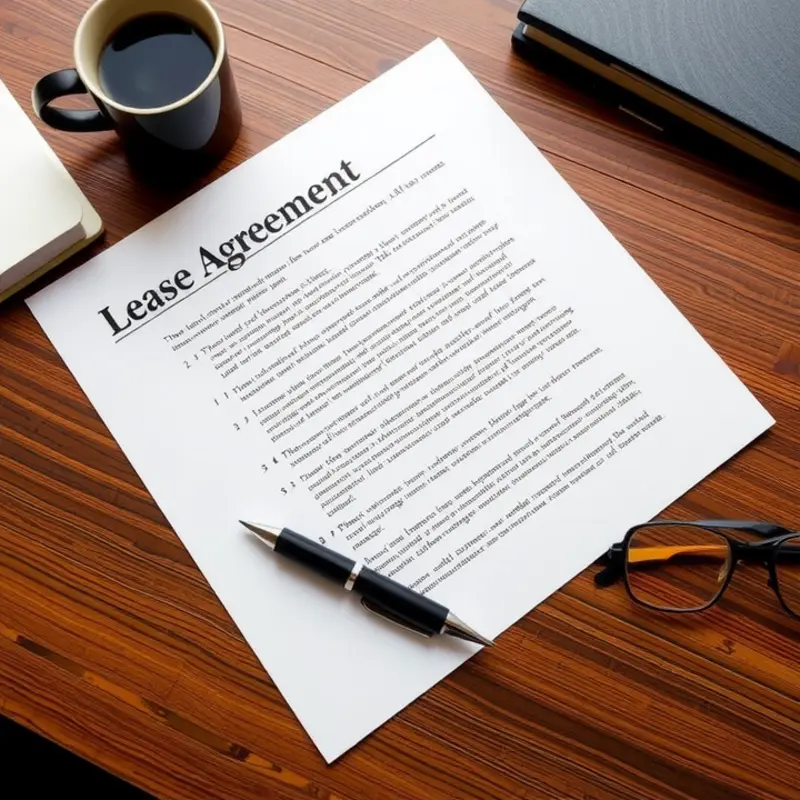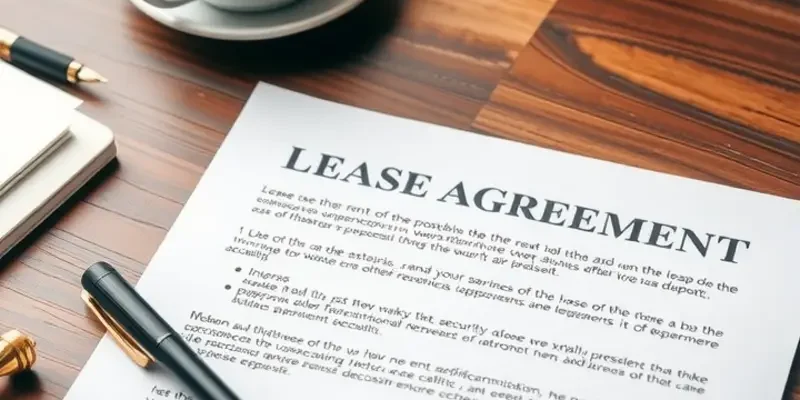Navigating the rental landscape can feel daunting, especially when faced with the complexities of lease agreements. Whether you are a young professional just starting your career, a student settling into college life, a couple looking for a cozy nest, or a family seeking a new home, having a clear understanding of your lease is essential for financial peace of mind. Legal lease clauses often contain key information about tenant responsibilities, rights, and obligations, which can significantly impact your living experience. As such, familiarizing yourself with these legal terms can empower you to make informed decisions, avoid disputes, and budget your monthly expenses effectively. This guide aims to break down critical lease clauses, ensuring you grasp the important details that could ultimately shape your rental journey. With the right knowledge in hand, you can confidently sign on the dotted line and enjoy the comforts of home without the fear of unexpected surprises.
The Fundamentals of Lease Clauses

As a renter, understanding the core components of lease agreements is essential. Lease clauses outline the legal framework of your rental arrangement. They ensure both parties have a mutual understanding of their rights and responsibilities. Knowing what these clauses cover can help prevent misunderstandings and disputes.
One of the most crucial parts of a lease is the rent payment clauses. This section specifies the amount of rent due, the due date each month, and the acceptable methods of payment. It may also include details about late fees, such as how they are calculated and when they are applied. Understanding these details can prevent potential issues with your landlord.
Another essential component is the clause regarding security deposits. Typically, this clause states the amount of the security deposit, conditions for its use, and the circumstances under which you may lose part or all of it. This could include damages beyond wear and tear or unpaid rent. Ensure you receive a written list of any deductions made from your deposit when your lease ends. For additional tips on managing related charges, consider exploring resources on disputing unfair rent charges.
The lease should also clarify maintenance responsibilities. This specifies which repairs you are responsible for and which are the landlord’s duty. Generally, landlords manage major repairs to ensure the property is habitable. Meanwhile, minor issues like changing light bulbs or maintaining cleanliness are often tenants’ responsibilities.
Another critical section of a lease is the alteration and modification clause. This outlines what, if any, changes you can make to the rental property. While some leases allow for painting walls or installing shelves, others may be more restrictive. Always get approval in writing before making any unauthorized changes to avoid penalties.
Pet policies are another aspect that renters with animals need to consider. Leases often include specific restrictions or requirements for pets, including additional deposits or monthly fees. Some properties may have breed or size restrictions. Ensure you review this clause thoroughly if you plan on having a pet.
Lastly, understand the termination and renewal clauses. These explain how the lease can be ended by either party and any notice that must be given. Some leases automatically renew unless you provide notice, while others transition to a month-to-month tenancy.
By familiarizing yourself with these clauses, you’re less likely to encounter unexpected challenges during your tenancy. The lease agreement is a binding contract, so both understanding and adhering to it are paramount for maintaining a good rental experience.
Navigating Special Clauses and Addendums

When venturing into renting an apartment, understanding special clauses can make a significant difference in your experience. These clauses demand careful examination as they outline specifics that go beyond the standard lease agreement.
One of the most common clauses renters encounter pertains to pet policies. Pet policies can vary significantly from one lease to another. Some agreements might completely prohibit pets, while others may allow them with certain restrictions. These could include limitations on the type or size of pets, additional security deposits, or monthly pet rents. Ensure that you thoroughly understand what is allowed and the potential costs involved. For more detailed insights, you can explore further guidance on this topic at Moving with Pets.
Another essential clause revolves around maintenance responsibilities. It’s common for lease agreements to specify who is responsible for maintenance tasks such as lawn care, snow removal, or minor repairs. Typically, landlords handle significant repairs, but tenants might be expected to manage smaller issues or routine maintenance. Checking these terms will clarify what tasks are your responsibility and what requires notifying the landlord.
Lease termination clauses also play a crucial role in ensuring peace of mind during the rental period. These clauses dictate how and under what circumstances a lease may be terminated early. Common reasons for early termination include job relocation, domestic violence, and military deployment. Knowing the notice period required and any associated fees for breaking a lease provides a strategic advantage should circumstances change.
Moreover, addendums are documents that modify or add to the original lease agreement. They can cover a variety of issues, such as clarifications on specific terms or updates on new rules. These addendums are legally binding and must be read thoroughly before signing. Whether it’s a change in the building’s rules or updates on shared utility bills, being informed prevents unanticipated surprises.
Each of these clauses serves an essential purpose, protecting both the tenant and landlord’s interests. A well-understood lease, with all its clauses clearly outlined, ensures a smooth and predictable rental journey. Always seek clarification from your landlord or a legal expert if any clause raises concerns or seems ambiguous to guarantee your rights and responsibilities are fully grasped.
Final words
Understanding lease clauses is crucial for both first-time renters and seasoned tenants alike. By unpacking these legal terms and details, you can ensure your rights are protected, and you avoid potential pitfalls during your rental experience. Remember, a lease agreement is a binding contract; knowing what you’re signing can save you from financial headaches and legal disputes down the line. As you move forward on your renting journey, keep these insights in mind to make informed choices and create a comfortable living space tailor-made for you and your family.









